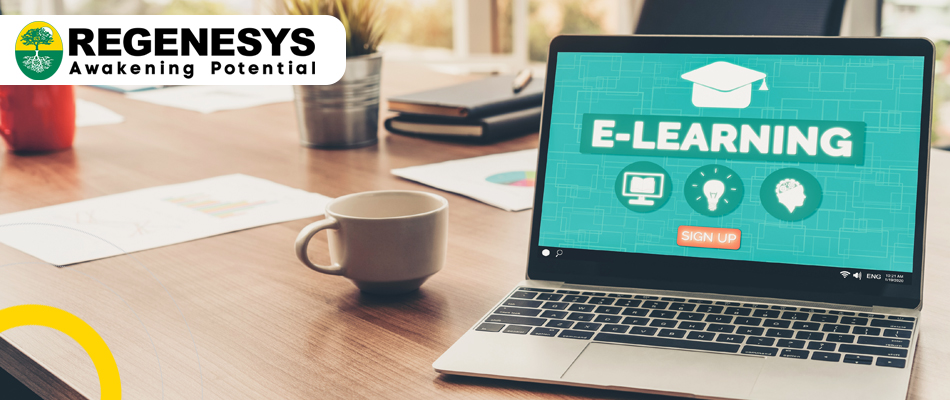Completing your MBA degree is a great accomplishment, but that is the beginning of your journey towards a successful career.
In today’s fast-paced and constantly evolving business world, staying relevant and continuing learning is essential even after earning your degree.
In this article, let us explore the importance of continuous learning after an MBA degree and provide some tips on how to stay relevant in your field.
In This Article:
- What Is Continuous Education?
- The Importance Of Staying Relevant After Obtaining An MBA
- The Evolving Business Landscape And The Need For Continuous Learning
- Building A Learning Culture: Tips For Staying Curious And Motivated.
What Is Continuous Education?
Continuous education is often called lifelong learning or continuing education.
Continuous education is the ongoing process of acquiring knowledge, skills, and expertise beyond formal schooling. It involves a deliberate and voluntary commitment to learning and personal development, both professionally and personally, regardless of age or career stage.
The Importance Of Staying Relevant After Obtaining An MBA
Obtaining an MBA degree is a significant achievement. It opens doors to many opportunities and career advancement.
An MBA programme equips individuals with a robust foundation of:
- Leadership skills,
- Business knowledge and
- A valuable network of professionals.
Yet, it is crucial to recognise that earning an MBA degree is just the beginning of a lifelong journey of learning and growth.
In today’s rapidly evolving business landscape, staying relevant is crucial. This ensures continued success and professional development. The skills and knowledge acquired during an MBA programme may become outdated as new technologies emerge, industries transform, and business practices evolve.
Therefore, continuous learning becomes crucial to remain competitive and stay ahead of the curve.
The business world is constantly evolving. Thus, professionals must adapt to these changes to remain valuable and sought-after.
Continuous learning lets MBA graduates stay updated on the following:
- Innovations,
- Best practices and
- Industry trends.
Continuous learning enables individuals to:
- Acquire new skills,
- Refine existing ones and
- Expand their knowledge base.
Thus ultimately enhancing their ability to make informed decisions and drive organisational success.
Moreover, staying relevant goes beyond acquiring technical skills. It encompasses developing a mindset of adaptability, creativity, and innovation.
By embracing a growth mindset and actively seeking opportunities for learning and development, MBA graduates can differentiate themselves in the marketplace and demonstrate their commitment to professional excellence.
The Evolving Business Landscape And The Need For Continuous Learning
In today’s rapidly evolving business landscape, staying relevant after obtaining your MBA degree is crucial.
The business world constantly changes, with new technologies, emerging markets, and shifting consumer demands reshaping industries overnight. As an MBA graduate, it is essential to recognise the need for continuous learning to adapt and thrive in this dynamic environment.
Gone are the days when an MBA degree alone guaranteed a successful career.
While the foundational knowledge and skills acquired during your MBA programme are undoubtedly valuable, they must be supplemented with ongoing learning and development.
Constant disruptions characterise the business landscape, and to remain competitive, professionals must stay ahead of the curve.
The Benefits Of Continuous Learning
Continuous learning is the key to unlocking success in this ever-changing environment. The evolving business landscape demands a proactive approach to staying relevant after completing your MBA.
By embracing ongoing education, expanding your skill set, and fostering personal growth, you can position yourself as a resilient and adaptable professional, ready to navigate the challenges and seize the opportunities that lie ahead.
Continuous learning offers numerous benefits in this context.
- Firstly, it lets you stay updated with industry trends, innovations, and best practices. You can identify emerging opportunities and make informed decisions by seeking new knowledge and insights. This proactive approach helps you remain:
- Agile,
- Adaptable and
- Ready to seize the ever-changing business landscape.
- Moreover, continuous learning enables you to expand your skill set beyond the core competencies gained during your MBA.
- As industries evolve, new skills become essential for success. You can acquire specialised knowledge in data analytics, digital marketing, or strategic leadership by continuously learning.
- Continuous learning enhances your professional value and positions you as a versatile and sought-after candidate in the job market.
- Furthermore, continuous learning fosters personal growth and professional development.
- It challenges you to step out of your comfort zone, embrace new ideas, and develop a growth mindset.
- It encourages creativity, critical thinking, and problem-solving abilities, which are highly valued in today’s business landscape.
Therefore, investing in your personal and professional growth demonstrates a commitment to lifelong learning and personal excellence, qualities that set you apart from the competition.
Building A Learning Culture: Tips For Staying Curious And Motivated
Building a learning culture is essential for staying curious and motivated after completing your MBA. The business landscape constantly evolves, and staying relevant by continuously expanding your knowledge and skills is crucial.
Here are some tips to help you foster a learning mindset and stay motivated in your professional journey:
Embrace a Growth Mindset:
- Growing your abilities and intelligence through hard work and dedication is part of adopting a growth mindset.
- Embrace challenges, view failures as opportunities for growth, and seek feedback to enhance your learning.
Set Learning Goals:
- Establish specific and measurable learning goals to guide your continuous learning journey.
- Whether it is:
- Mastering a new skill,
- Acquiring new industry knowledge, or
- Staying updated on emerging trends.
- Having clear goals will keep you focused and motivated.
Diversify Your Learning Sources:
- Explore various learning sources beyond traditional textbooks and courses, such as:
- Listen to podcasts,
- Attend conferences and webinars,
- Engage in industry-specific publications and
- Participate in online forums and communities.
- By diversifying your sources, you gain different perspectives and stay well-informed.
Network and Collaborate:
- Surround yourself with like-minded professionals who are also committed to continuous learning.
- Engage in networking events, join professional associations, and seek mentorship opportunities.
- Collaborating and exchanging ideas can spark new insights and broaden your knowledge.
Develop a Reading Habit:
- Make reading a regular part of your routine.
- Read books, articles, and research papers related to your field or topics of interest.
- Reading exposes you to different viewpoints, expands your knowledge base, and stimulates critical thinking.
Embrace Online Learning Platforms:
- Take advantage of the vast array of online learning platforms available today.
- Many EdTech platforms offer courses and certifications to help you acquire new skills or deepen your expertise in specific areas.
- Regenesys Business School, an international business school, provide internationally recognised undergraduate and postgraduate online programmes.
Reflect and Apply:
- Reflect on your learning experiences and apply what you have learned in real-life situations.
- This practice reinforces your understanding, helps you internalise knowledge, and enhances your ability to adapt and apply newfound skills.
By building a learning culture and staying curious and motivated, you will position yourself for long-term success and growth in your career after completing your MBA. Remember, continuous learning is a lifelong journey that will keep you relevant and agile in a rapidly changing business world.
The Bottom Line
Embarking on the journey of continuous learning is the key to staying relevant and achieving long-term success after completing your MBA.
The business landscape is constantly evolving with new:
- Trends,
- Technologies and
- Strategies that are emerging at a rapid pace.
Committing to lifelong learning allows you to adapt and thrive in this dynamic environment.
Continuous learning goes beyond the traditional classroom setting. It involves actively seeking:
- New knowledge and skills,
- Staying updated on industry developments and
- Cultivating a growth mindset.
This mindset allows you to embrace challenges, seize opportunities, and continuously improve personally and professionally.
Continuous learning can expand the following:
- Knowledge base,
- Refine your expertise and
- Broaden your perspectives.
Continuous learning helps you to:
- Stay ahead of the curve,
- Anticipate industry changes and
- Make informed decisions.
Continuous learning enables you to develop innovative solutions, adapt to new technologies, and embrace emerging trends. Moreover, continuous learning fosters personal and professional growth. It enhances your:
- Problem-solving abilities,
- Critical thinking skills and
- Decision-making capabilities.
- It also promotes creativity, resilience, and adaptability – all essential for success in today’s competitive business world.
If you aspire to gain more confidence in your professional life and climb the ranks of success in your industry, then continuous education is precisely what you need. Regenesys Business School provides a range of online learning programmes in all sectors.
Continue your education at Regenesys Business School to stay relevant in a competitive job market.
Enhance productivity and diversity with our MBA – masters in business administration programme, designed and facilitated by industry and subject matter experts.
Regenesys Business School has proven to be one of the fastest-growing and leading MBA business schools, providing management courses, business courses, and business administration courses. Sign up @ Regenesys Business School to learn more about the MBA programme.
FAQs – Frequently Asked Questions: Continuous Learning: Staying Relevant After Your MBA
What is Continuous education?
Answer: Continuous education is a mindset and commitment to self-improvement, embracing learning as a lifelong journey.
Continuous education empowers individuals to:
- Stay competitive,
- Grow personally and professionally and
- Adapt to the ever-evolving demands of the modern world.
Why is Continuous Learning Important?
Answer: Continuous learning is essential as it can help individuals to:
- Stay up-to-date with the latest industry trends and technologies,
- Make individuals more competitive in the job market and
- Allows individuals to take on new challenges and responsibilities.
What are the key aspects of continuous education?
Answer: The key aspects of continuous education include:
- Networking,
- Personal Growth,
- Career Switching,
- Staying Relevant,
- Flexible Learning,
- Personal Enrichment,
- Adaptation to Change,
- Upgrading Qualifications,
- Professional Development,
- Personal and Professional Adaptation.
Is leveraging technology crucial for staying relevant after completing your MBA?
Answer: Yes. Leveraging technology is crucial for staying relevant after completing your MBA degree.
One of the most significant advantages of leveraging technology is the accessibility it provides.
By embracing technology and utilising online resources and platforms, you can unlock a world of continuous learning opportunities that will keep you relevant and adaptable in the ever-changing business landscape. Remember, the key to success is embracing lifelong learning and staying ahead of the curve.
What is the difference between Continuous learning and lifelong learning?
Answer: There needs to be more clarity regarding the difference between continuous and lifelong learning.
Continuous learning and lifelong learning are frequently used interchangeably.
Continuous learning:
- Continuous education is often referred to as lifelong learning or continuing education.
It is the ongoing process of acquiring knowledge, skills, and expertise beyond formal schooling.
Lifelong learning:
- The term lifelong learning is aimed more at the individual level.
- Lifelong learning refers to someone who makes a long-term, voluntary commitment to learning new skills or acquiring new knowledge.
- Lifelong learners incorporate continuous learning as part of their lifestyle.







